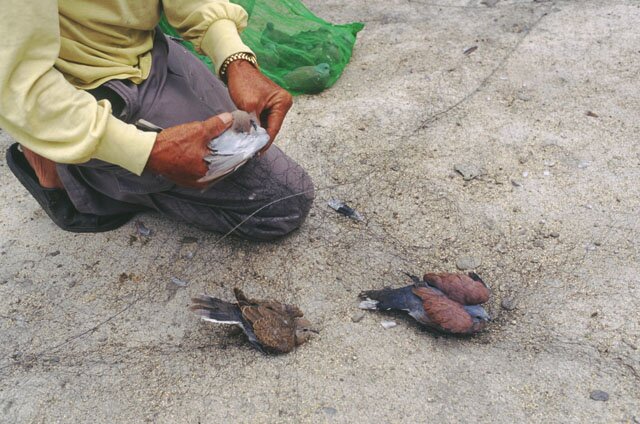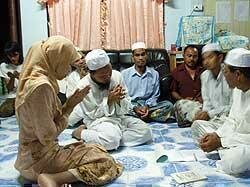BROWSE COUNTRIES/ TERRITORIES
Three weddings and a takeover
Or how Wendi Deng Murdoch could end up running the world’s most aggressive media empire.
In July, Rupert Murdoch bagged a prize that he had long sought after: Dow Jones & Co – and, with it, the Wall Street Journal, America’s premier business paper with a reported yearly circulation of about 2.1 million, the second highest in the US after USA Today.
In doing so, the Australian-turned-American media mogul also set in motion a process that will see the eventual break-up of two family business empires: the Bancrofts, who controlled Dow Jones – and that of his own.
When Murdoch launched his US$5 billion bid for Dow Jones on May 1st, many in the market were sceptical. The Bancrofts had held Dow Jones for 105 years. Comments by the senior members of the Bancroft clan had suggested the family would be happy to hold it for another century, if not longer. Together, the Bancrofts held only 24% of Dow Jones but had 64% of the voting rights, thanks to a dual-class system that gave them more voting power per share. If the Bancrofts weren’t selling, the saying went, the Wall Street Journal was not for sale.
Fault lines
Murdoch had his own ideas. Every family business empire, he knew, has a fault line, a hidden weakness that could be exploited. For him, this meant turning the current crop of Bancrofts against one another – leaving Dow Jones vulnerable to a takeover.
For Murdoch himself is no stranger to family empire fault lines. In 2004 he suffered one of his own when he tried to shoehorn his two daughters by Wendi Deng, his third and current wife, into the future management of News Corporation, Murdoch’s globe-straddling media empire whose assets include more than 100 papers (most famously the venerable Times of London); the BSkyB and Star satellite television services; Fox TV network; and MySpace, the Internet’s top social network portal.
As part of his divorce settlement with wife No. 2 Anna Torv, Murdoch had had to put a 28.5% share (currently worth about US$24 billion) of News Corp into a family trust, with his four adult children – Prudence, then 46, Elisabeth (36), Lachlan (33), and James (32) – as chief beneficiaries. This means the children – all of whom save Prudence have worked in various parts of News Corp – will end up running the conglomerate after their father’s death.
Urged by Deng, Murdoch wanted to change the trust to give Chloe, then 3, and Grace, 2, a greater role in the trust, which in turn would give the girls a say in the running of News Corp as well. Effectively though, it would be Deng who controls their votes, the girls being minors.
Not surprisingly, Murdoch’s attempt met with unanimous and vehement objections from the Murdoch children, who agreed to giving their half sisters a stake in the inheritance, but objected to their half sisters (or Deng) sharing control of News Corp. Being the primary beneficiaries, their objection carried the day and Murdoch suffered one of his rare defeats – or so it seems.
The Bancrofts: the genteel poor
The Bancrofts were a different story. To its members, control had never been an issue. Their fault line was money – and Murdoch understood that.
The Bancrofts descend from Clarence Barron, the founder of modern financial journalism who built up Dow Jones at the turn of 20th century, though it was only after his step-daughter, Jane, married into the Bancrofts, an old Bostonian family, that Barron entered the upper ranks of society.
By tradition, the Bancrofts sit on the Dow Jones board but rarely involve themselves in its management or its editorial policies. They were simply content to be associated with one of the most respected names in American business, and with the monetary proceeds that came with it.
But profits started thinning in recent years. Like other print media, the Journal suffered from the migration of advertisers to Google, Yahoo and other online portals. A series of bad management mistakes (including a US$1 billion loss from the disastrous purchase of Telerate) saw Dow Jones shrinking while other media groups ballooned. Based on figures released earlier this year, Dow Jones was worth less than US$4 billion while News Corp was valued at just below US$80 billion.
Among the upper crust of America’s business elite, the Bancrofts are the genteel poor. Their stake in Dow, before Murdoch made his bid, was worth a mere US$750 million – averaging US$21 million per member, less than the monthly pay of a top Wall Street financier. Murdoch’s bid raised the value of their stake to US$1.2 billion, which translated into an average windfall of nearly US$13 million per member.
This made persuasive argument for selling out. While some of the older Bancrofts were against the sale, the rest felt they would never see such money again should they let the deal fall through. By mid July, a majority of them had opted to sell. Murdoch had his way.
The sale of Dow Jones dissolves the glue that had held the Bancrofts together for a century. From now on each will go his or her own way. The family that had presided over American financial journalism for a century is now history.
The Rise of Wendi Deng
Murdoch has made no secret he wants to run the biggest media company in the world. This means he must be a major player in two emerging markets – the Internet and China. In both markets he has worked closely with his current wife, Deng, but only indirectly. Deng would have had legitimate ground to be elected to the News Corp board if Murdoch had managed to amend the family trust in 2004. Because that failed, Murdoch has adopted a different approach: he is creating a new media empire, one that is adjunct to News Corp, but not bound by its rules, to be run by Deng. In a nutshell, he has set in the process of splitting his family empire into two, passing one of them into the hands of Deng.
Chinese-born Deng, 38, met Murdoch, 76, in 1997 when she, as a middle manager of his Star TV, gate-crashed his party in Hong Kong and introduced herself when he walked through the door. They started dating the following year and were married in 1999, 19 days after Murdoch’s divorce from Torv.
Obscured by news of Murdoch’s bid for Dow Jones, many missed the announcement that Deng had been appointed a director of MySpace China. This is her first appointment in News Corp.
MySpace China has an unusual corporate structure – it is 51% held by News Corp, but managed by the Chinese, including, it is said, Deng’s younger brother. Neither News Corp nor MySpace has direct control over MySpace China. The one wields the power at the company is none other than Deng herself.
Breaking into China
Where MySpace goes, other News Corp assets are likely to follow. In coming months, expect similar joint ventures in China. Each will have News Corp as a major investor but it will be run by a team that ultimately reports to Deng. Even the Journal is likely to go the same route.
This is no mere sleight of hand by Murdoch to pass control to Deng, though it must be one of his intentions. With half a billion people learning English, China will become the biggest English-speaking country in 20 years. It is a market no global media company can afford to ignore. Under current rules, the joint venture is the best way to enter the Chinese market. For instance, Yahoo paid US$1 billion to buy the mainland e-commerce firm, Alibaba, to spearhead its growth in China.
The Journal has an Asian edition, which has a circulation of less than 100,000 after two decades of operations, barely scratching the surface of potential demand among Asia’s booming economies. China alone could yield millions of readers, if the Journal is willing to go into a joint venture in the mainland.
Under the Bancrofts, any talk of such a joint venture would have been a non-starter. It now falls on Murdoch to persuade the independent panel that such a venture will benefit the Journal, without sacrificing the paper’s journalistic integrity. To avoid talk of conflict of interest, Deng is unlikely to take a direct role in such a venture, but it’s difficult to see how she could be kept out of the picture, given that she speaks and understands Chinese and had spearheaded the setting up of MySpace in China.
For the critics of the holier-than-thou Journal, there is a delicious irony that Deng – who seven years ago was severely criticised by the Journal – is now in line to end up running the paper. The irony takes on another dimension when one remembers that Deng’s original name is not “Wen Di” (she combined the two words in English) but “Wen Ge”, which means “Cultural Revolution” in Chinese. Barron would turn in his grave if he knew that a woman named after the darkest episode in China’s modern history could end up running the publication he had built up to be the most capitalistic paper in the world.
But Barron is the past and Deng, the future. At his age, Murdoch has at most a decade of active years, after which he has to pass the running of News Corp to someone. None of his adult children works closely with him, if at all. It takes little to see whom he favours as his successor. Creating a series of joint ventures under Deng is the only way he can achieve his objective. Given time, Deng’s influence in News Corp will grow, to the extent that after Murdoch goes, his children will have little choice but to accept her into the top management of News Corp. No doubt this is an outcome that would be welcomed by the Chinese government.
Related Stories:
Ten things you didn't know about Wendi Deng
Anna Chan Chennault and Wendi Deng: Sisters in fortune *cs
Rupert and Wendi *cs
- PEOPLE OF ASIA
- LIVES
- China
- Outside Asia
- North America
- North Asia
- Society, Class and Division
- Art and Celebrity Asia
- Influential People in Society
- Top Billionaires and Business Tycoons
- The Asian Diaspora in the US/North America
- Cross-Cultural Marriage
- News Corp
- Rupert Murdoch
- Wendi Deng
-

- Login or register to post comments
 PRINT
PRINT- EMAIL THIS STORY
Login or Register
 Lee Han Shih is the founder, publisher and editor of asia! Magazine.
Lee Han Shih is the founder, publisher and editor of asia! Magazine.
- Asian Dynasties and History
- Conservation of the Environment
- Definition: Culture
- Economy and Economics
- Food and Recipe
- Geopolitics and Strategic Relations
- Health and Body
- Of Government and Politics
- Religion and Practices
- Social Injustices and Poverty Report
- Society, Class and Division
- Unrest, Conflicts and Wars
































 Another Point
Another Point An imaginary factual blog of General David Petraeus, Commander, United States Central Command
An imaginary factual blog of General David Petraeus, Commander, United States Central Command